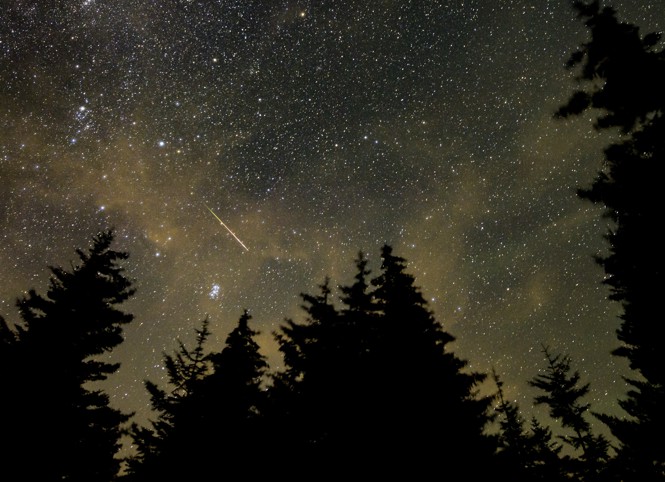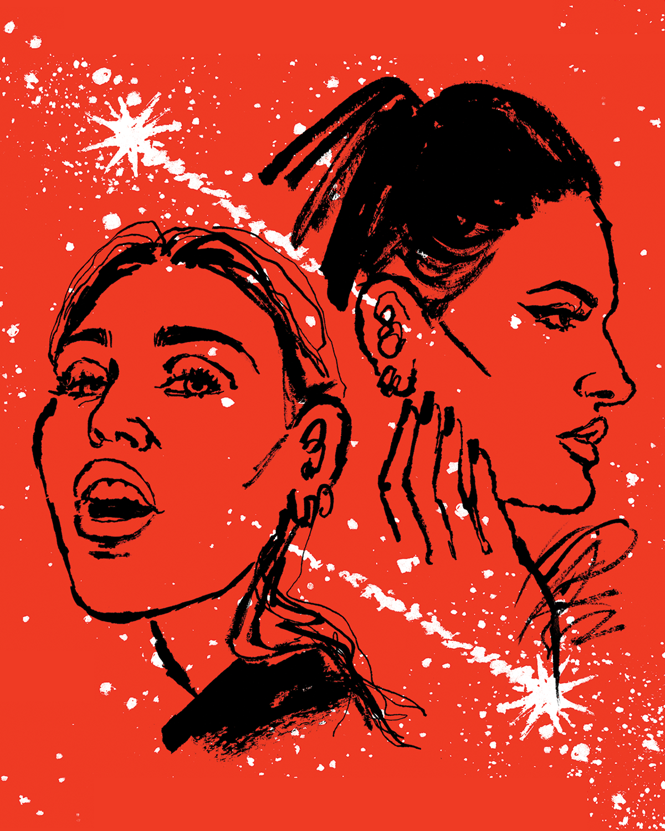Today we’re offering a brief history lesson (and a brief themed diversion). But first, here are three new stories from The Atlantic:
With the Fourth of July comes all the complexities of collective observance—patriotism, fireworks, picnics, apathy, resistance. The holiday has always been one of dualities. It has also always been political.
After 1776, the day was celebrated throughout the Revolutionary War. “The trend in the early republic would be for July Fourth, and other celebrations modeled on the Fourth, to spread nationalism and, at the same time, to provide venues for divisive political expression,” the historian David Waldstreicher wrote in 2019—the year then-President Trump ordered a military parade, complete with tanks, to observe the day.
After the Civil War, Black Americans in the South transformed the date into a celebration of emancipation, according to the historians Ethan J. Kytle and Blain Roberts, complete with martial displays, dedicated performances, and food and drink. “The Fourth became an almost exclusively African American holiday in the states of the former Confederacy—until white Southerners, after violently reasserting their dominance of the region, snuffed these black commemorations out,” they explained in 2018.
In the decades after the Civil War, the Fourth gradually lost its civic character and was marked in many cases by drunken, raucous affairs, rife with gunfire, injury, illness, and death, our deputy editor Yoni Appelbaum wrote in 2011. The public-health solution in New England? Massive public spectacles—bonfires—in lieu of smaller gatherings. Today, that tradition lives on in the form of public fireworks displays.
Whether you’re waiting for fireworks, working, traveling, or resting at home today, join us for another time-honored tradition: a game of trivia. Below are five clues drawn from The Atlantic’s archives.
“A husband and wife may be divorced and go out of the presence and beyond the reach of each other,” this president observed in his first inaugural address, “but the different parts of our country can not do this. They can not but remain face to face, and intercourse, either amicable or hostile, must continue between them.”
Assessing this film in 1996, Roger Ebert called it “in the tradition of silly summer fun, and on that level I kind of liked it.” Our staff writer Megan Garber wrote that it was, “in the era before cowboy diplomacy and the isolationist impulses that sprang from it, a comically blithe rendering of American exceptionalism.” (Bonus points if you can name the director.)
The first newspaper printing of the Declaration of Independence contains a crucial typo that has led to a fundamental misunderstanding of what the document intended, the political theorist and scholar Danielle Allen has argued. This typo comes midway in the famous sentence that begins with “We hold these truths to be self-evident ….” Can you complete it?
This country gained independence from the United States on July 4, 1946, after almost half a century of American colonial rule. “In 1776, the United States sought to escape the rule of one empire. On its way out the door, its representatives proclaimed that just governments derive their powers from the consent of the governed. After 1898, the United States acquired an empire of its own. And between that latter outcome and the former words gaped an uncomfortable contradiction,” David Frum wrote in 2021. “That contradiction was no less apparent a century ago than it is today.”
This American author and abolitionist is perhaps best known for writing the anthem “Battle Hymn of the Republic” (a five-stanza poem that The Atlantic paid $5 to publish in February 1862), but she was also a noted pacifist and advocate for women’s rights. Her work for The Atlantic shows “the point of view of a woman before modern feminism—the point of view of someone who wants to pitch in but must do so from the confines of the home,” Spencer Kornhaber wrote. Her poem “The Flag,” for instance, goes:
My wine is not of the choicest, yet bears it an honest brand;
And the bread that I bid you lighten I break with no sparing hand;
But pause, ere you pass to taste it, one act must accomplished be:
Salute the flag in its virtue, before ye sit down with me.
Related:
In 1902, Bliss Perry contemplated the beginnings of American imperialism and the waning of patriotic spirit.

Scientists Found Ripples in Space and Time. And You Have to Buy Groceries.
By Adam Frank
The whole universe is humming. Actually, the whole universe is Mongolian throat singing. Every star, every planet, every continent, every building, every person is vibrating along to the slow cosmic beat.
That’s the takeaway from [the recent] remarkable announcement that scientists have detected a “cosmic background” of ripples in the structure of space and time. If the result bears up as more data are gathered, it’s a discovery that promises to open new windows on everything from the evolution of galaxies to the origin of the universe.
Scientists had been awaiting such a discovery for decades. More than 100 years ago, Einstein introduced his radical general theory of relativity. For Einstein, space and time were a single entity, “space-time,” comprising a flexible fabric that could be stretched and compressed, bent and warped. In general relativity, matter makes space-time bend, and space-time, in turn, guides how unconstrained matter will move. Because space-time is flexible, you can make it wave. Just like snapping a bedsheet, if you move enough matter around fast enough, a wave of distorted space-time will ripple outward into the universe.

Read. Written on Water, a collection of essays first published in 1944 by the Shanghainese writer Eileen Chang, whose observant essays about day-to-day realities double as a manual for surviving history.
And if you want to pick up something new but only have short stretches of time, Morgan Ome recommends five essay and short-story collections that are easy to read at your own pace.
Watch. Crash Course in Romance, on Netflix, a drama series featuring an all-star cast of Korean actors that aptly depicts the pressures students face in hypercompetitive academic environments.
Play. Our new print crossword puzzle puts a fresh narrative spin on a classic, as our crossword-puzzles editor Caleb Madison explains. The deeper you go, the more difficult it becomes.
Three American presidents notably died on Independence Day—John Adams, Thomas Jefferson, and James Monroe—and one was born on this day. The novelist Nathaniel Hawthorne, who throughout his life wrote frequently for The Atlantic, shares this birthday too. Hawthorne even did a fair bit of reporting: In this 1862 essay, for instance, he traveled from Massachusetts to Washington, D.C., to interview civil and military leaders during the Civil War.
— Shan
Don’t write off popular Korean-language TV series as sappy melodrama. These shows will expand your conception of what storytelling can be. Read on for recommendations for your weekend.
But first, here are three new stories from The Atlantic:
To describe the plot of Crash Landing on You to the uninitiated is to invite mockery. After a paragliding test from Seoul gone wrong, a South Korean heiress and entrepreneur crash lands, literally, onto a stunningly handsome North Korean army officer, who, despite being lawful and rigid, decides to hide her and help her return home. What follows are 16 episodes, totaling more than 20 hours, of a story so propulsive I could watch nothing else for weeks after.
Netflix first waved the show in my face in January 2020, but I was preoccupied with the self-imposed assignment of finishing all eight seasons of Game of Thrones, because I felt left out at the cultural watercooler. My mother, though, saw the light. Throughout the first year of the pandemic, she watched Yoon Se-ri and Captain Ri fall in love, hide and then unearth their respective familial traumas, and find friends and purpose, in and out of North and South Korea.
My mom had long known this world. For two decades, in between the demands of teaching, she would watch Dae Jang-geum (a 2003 drama that follows a girl who grows up to be the first female royal physician of the Joseon era) and savor the series Winter Sonata (a thoughtful 2002 romance about first love and second chances). As a disaffected teenager, I considered my mother’s devotion to Winter Sonata’s Bae Yong-joon embarrassingly out of tune, but she had been one of millions to join in the beginnings of the Hallyu wave. In 2021, Netflix, which has a bit of a stranglehold on the streaming market for new K-dramas, said it would spend about $500 million on Korean programming that year (and enabled the production of about 80 new Korean shows and films between 2015 and 2020).
To paraphrase my colleague and eminent critic of all things BTS, Lenika Cruz, first, you aren’t a fan. Then, you are. And so I am. K-dramas, in all of their multitudes, expanded the boundaries of what I thought good storytelling could be. Like their cousins the telenovela and the Indian serial, K-dramas (the term broadly refers to Korean-language TV series made in South Korea) are critically sidelined as melodrama, given their sensational plotlines. Of course there are low-quality duds, and some are ridiculously plotted, if still good fun (no judgment). Of course there are tropes (amnesia, rich-girl-poor-boy or vice versa, tragic illness, overlapping past lives). But the “drama” in K-drama misleads. K-dramas come in all genres—intimate dramas, yes, but also fantasies, histories, horror; multiple genres often swirl into one show. Crash Landing on You is a romantic drama, but it’s also part mystery and part satire that winks at K-drama tropes. And Little Women, nominally based on the Louisa May Alcott classic, is a visually jaw-dropping thriller about family, class, and morality in which three hustling sisters wind up at the center of a major conspiracy involving the wealthiest family in South Korea.
To me, a K-drama’s core tenets are its satisfying moral arcs—even for side characters—plot twists, and a preponderance of feeling. (Bonus: beautiful clothes.) The shows prize emotional clarity, whether the feelings are loving or ugly or just little: worry, pettiness, a first crush, the dancing insecurity of early friendships. There’s no value in repressing them, no shame in expressing them.
I watched Game of Thrones so I wouldn’t miss out. The same impulse drove me to start Crash Landing on You last fall, years after its release, because I wanted to join the growing universe of breathless viewers who had seen the light. As I watched at home, my partner, catching up on some emails, would turn over his shoulder to see the screen and ask me questions such as “So how did his dead brother’s watch end up in her possession?” and “Did the reluctant spy who found his conscience make it out with his family?”
Look over your shoulder. Come see the light. I know you’ll find a K-drama you’ll love. Here’s where to start (all of these are available on Netflix):
If you want a lengthy thriller to get lost in … Little Women (12 episodes)
If you want a snackable legal procedural with heart … Extraordinary Attorney Woo (16 episodes)
If you want to cry and cry and cry … Thirty-Nine (12 episodes)
If you want to be awash in nostalgia … Our Beloved Summer (16 episodes) and Twenty-Five Twenty-One (16 episodes)
If you want to breeze through something silly … Business Proposal (12 episodes)
If you want your zombies with a dash of historical political intrigue … Kingdom (12 episodes)
Related:
Today’s News
Dispatches
Evening Read

The Freakish Powers of Miley Cyrus and Lana Del Rey
By James Parker
If you’re looking to the stars—and why wouldn’t you be?—you’ll know that Saturn has entered the sign of Pisces. It happened in early March: Shaggy old Saturn, god of constriction and mortality, lowered his iron haunches into the Piscean waters. He’ll be there until May 2025, an intractable lump in that wishy-washy element. Displacing it. Blocking it. Imposing his limits. Enough with the changeability, he says to dippy, fin-flashing Pisces. Enough with the half-assedness. Endless mutation is not possible. Now you’re going to face—and be stuck with—yourself.
This will be a challenge, one senses, for artists in general. And for pop stars in particular. Who sheds selves, and invents selves, faster than a pop star? Who defies time and gravity with more desperation? Something else was augured for March: the release of new albums by two of our most continually expanding and dramatically evolving celestial bodies. I’m talking about Miley Cyrus and Lana Del Rey. Two emanations of the holy city of Los Angeles; two distinct transits across the firmament.
More From The Atlantic
Culture Break

Watch. The Terminator, home to Arnold Schwarzenegger’s signature line—“I’ll be back.” It’s a movie that has continued to define him.
Or watch the new Netflix limited series The Plane That Disappeared—and read the definitive account of how Malaysia Airlines Flight 370 vanished, the subject of our July 2019 cover by William Langewiesche.
Read. Mona Simpson’s new short story “Second Life,” an excerpt from her forthcoming novel, Commitment.
P.S.
Speaking of a growing universe of fans: Before the orchestra music plays me off the Daily stage, I’d like to point you to a new song that’s been on repeat for me on my commutes: “On the Street,” by j-hope (one of the rappers and dance king of the Korean supergroup BTS) and J. Cole (the American rapper and longtime idol of j-hope). I hope it brings pep to your next train ride, bike ride, walk, or whatever it may be.
— Shan
Katherine Hu contributed to this newsletter.